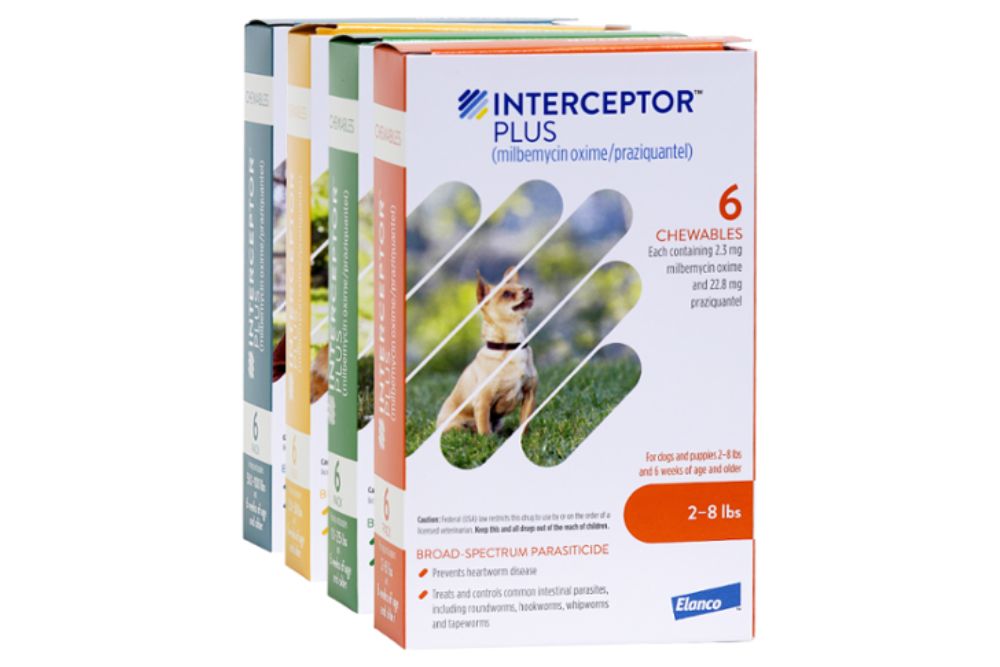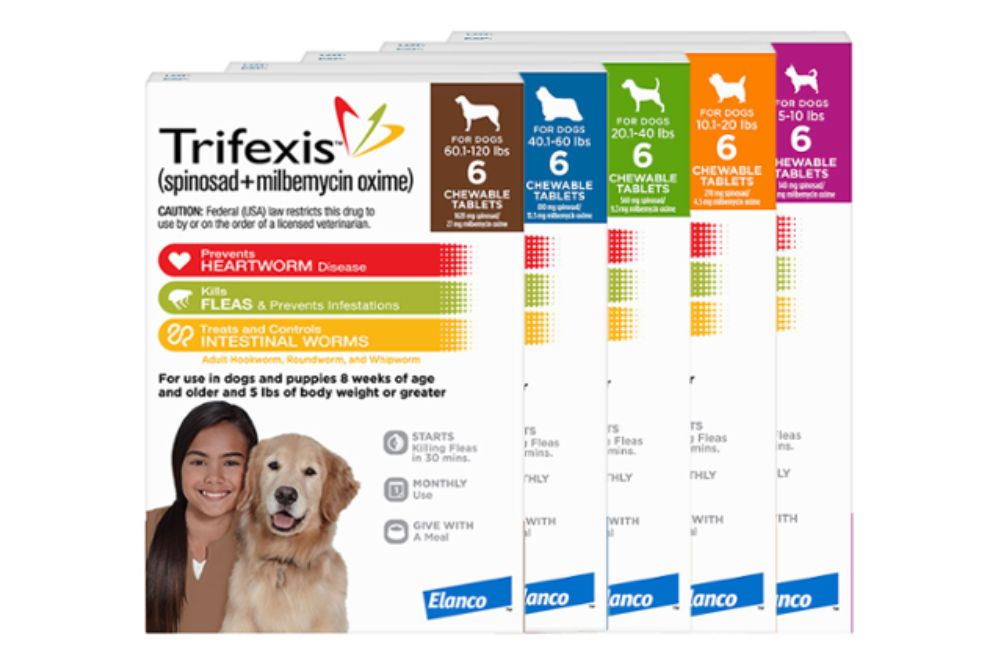Preventing Heartworm in Dogs: 4 Ways to Protect Your Pet

Most dog parents agree that keeping their companion parasite free is a priority. But parasite protection goes beyond what can be seen with the naked eye. Heartworm disease poses an invisible risk to our pets. Luckily preventing heartworm in dogs is easier than ever with effective preventatives.
Why Canine Heartworm Prevention is Important
Heartworm disease is a threat to dogs in every state in the U.S. and prevention should not be overlooked. It has the potential to cause widespread damage to your dog’s heart and lungs as well as damage to other vital organs. Oftentimes, dogs lack clinical symptoms until the disease has already done significant damage.
Dogs who test positive for heartworm have to undergo an extensive and expensive treatment regimen, and prognosis varies based on a dog’s symptoms, age, and medical history. Dogs undergoing heartworm treatment also have exercise and lifestyle restrictions that can be difficult for pet parents to manage. If the disease is advanced or if treatment is delayed, heartworm disease in dogs can be fatal.
Preventing heartworms in dogs with oral or topical medications such as Interceptor Plus, Trifexis, or Advantage Multi for Dogs is much easier and more affordable than treating the disease. But keep in mind that most preventatives must be administered monthly throughout the year to ensure continuous protection.
How Do Dogs Get Heartworms?
Dogs contract heartworms through the bite of a mosquito carrying infected larvae.
Prior to this transmission of infection from mosquito to dog, the mosquito takes a blood meal from an infected dog (or coyote, fox, or wolf) and ingests immature heartworms, known as microfilaria. With the passing of about 14 days, the microfilaria reach the stage of being infective. At that point, they become transmissible to other dogs when that same mosquito transfers the larvae through their bite.
After about 6 months of being in the ideal host, heartworms reproduce. They can grow to be about a foot in length and one dog can have anywhere from a few worms to hundreds depending on how advanced the infection is. Adult heartworms can live for several years inside a dog.
Although dogs who spend a considerable amount of time outside are at an increased risk for heartworm disease, dogs who remain indoors are still susceptible since mosquitos can easily get inside. Male dogs have anecdotally been reported to test positive for heartworms more frequently than female dogs, but the direct reasoning for this is unknown.
The biggest risk factor for heartworm in dogs is not routinely receiving veterinarian prescribed heartworm prevention.
4 Ways to Prevent Heartworm in Dogs

Although the thought of your furry friend contracting heartworm disease is alarming, there are several things you can do as a vigilant pet parent to keep your dog safe and protected.
Administer Heartworm Preventatives
There are several veterinary prescribed prevention options (see our picks below) depending on you and your dog’s needs. Many of these preventive medications also deworm your dog for gastrointestinal parasites such as hookworms, roundworms, whipworms, or tapeworms. There are also heartworm prevention medications that are combined with flea and/or tick prevention minimizing the number of monthly tablets or topicals you must administer.
Schedule Regular Veterinary Checkups and Heartworm Testing
These are important for preventing heartworms in your dog to ensure the medication is working as intended. Heartworm preventatives for dogs work by eliminating presence of larval stages of heartworm circulating through the blood, and do not prevent the initial mosquito bite or transmission, nor do they eliminate the presence of adult worms. Although these methods are highly effective when used as directed, missed doses or other variables – such as the animal spitting it out unseen – can impact a product’s efficacy. Heartworm testing is done once per year unless there are known doses missed or other faults found in the preventive protocol.
Use a Dog Safe Mosquito Repellent
If the mosquito does not bite the dog, it cannot transmit heartworm to the dog. Ensure that whatever product being used is safe for your dog, nontoxic, and safe to use around your other species of pets if applicable.
Treat Your Home and Environment
Another great way to reduce your dog’s risk of contracting heartworm disease is by eliminating mosquitoes from your home environment as much as possible. This can include removing all types of standing water that are on your property and using pet-safe yard treatments to keep mosquitoes away.
Top Heartworm Prevention Products for Dogs
As previously mentioned, keeping your dog on a year-round heartworm preventative is the best way to protect your dog from infection and disease. Here are some of the top heartworm prevention medications recommended by vets.
All featured products are chosen at the discretion of the Great Pet Care editorial team and do not reflect a direct endorsement by the author.
Interceptor Plus

This chicken-flavored chewable not only prevents heartworm, but it treats and controls adult hookworm, roundworm, whipworm and tapeworm infections in dogs. While Interceptor Plus isn’t a flea and tick preventative, it does offer more protection against intestinal worms than any other formula. Protection lasts for 30 days and this dog heartworm medication is available in four different sizes. It can be given to dogs who are at least 2 pounds and 6 weeks or older.

- Single monthly chicken-flavored chew that's easy to give
- Protects against five common types of worms that infect dogs
- Available in four dosing sizes to accommodate dogs of different sizes*
*Dogs and puppies 6 weeks or older and 2 pounds or greater
Simparica Trio for Dogs

If you are looking for an all-around medication that can prevent heartworm, fleas, ticks, and other types of intestinal worms, Simparica Trio is an ideal choice. This chewable dog heartworm preventative is easy to administer and protects against heartworms, fleas, five types of ticks, roundworms, and hookworms. It can be given to dogs 8 weeks and older and is administered once per month. Different doses cover dogs from 2.8 pounds all the way up to 132 pounds, making this a top choice of both pet parents and veterinarians.
Heartgard Plus

Worms are no match for Heartgard Plus. This well-known brand of heartworm prevention has been around for over 30 years, and the Plus version offers protection against roundworms and hookworms in addition to heartworms. The active ingredient, ivermectin, kills developing heartworms before they turn into adults. This beef-flavored chew is gobbled up easily by most dogs and is administered once per month for year-round protection. Heartgard Plus is safe for dogs 6 weeks of age and older.
Trifexis

If protecting against fleas in addition to heartworms is top of your priority list, then Trifexis is a great option. This monthly chewable tablet offers protection against heartworm, but it also starts killing fleas within 30 minutes. Additionally, Trifexis also protects dogs against hookworms, roundworms, and whipworms. This dog heartworm preventative is available in five different sizes and should be given to dogs once per month for 30 days worth of protection.
Advantage Multi

Advantage Multi is a 6-in-1 monthly topical solution that prevents heartworm disease, treats and controls sarcoptic mange and intestinal worms, and treats and prevents flea infestations. This prescription topical solution is easy to apply on the back of your dog and needs to be administered monthly. It can be given to dogs starting at seven weeks old. Dosing is determined by the weight of your dog, so be sure to select the correct dosage when purchasing through your veterinarian.
Steer Clear of Natural Heartworm Preventatives
It should be noted that natural heartworm preventatives are dangerous and ineffective. The only FDA-approved medications for heartworm prevention in canines are sold through veterinarians or pet pharmacies and require a prescription from your dog’s veterinarian.
To qualify for the prescription, your dog will need to have been examined by the veterinarian within the past 12 months as well as have up-to-date heartworm testing. There are no effective or approved over-the-counter preventatives nor treatments for heartworms in dogs.









